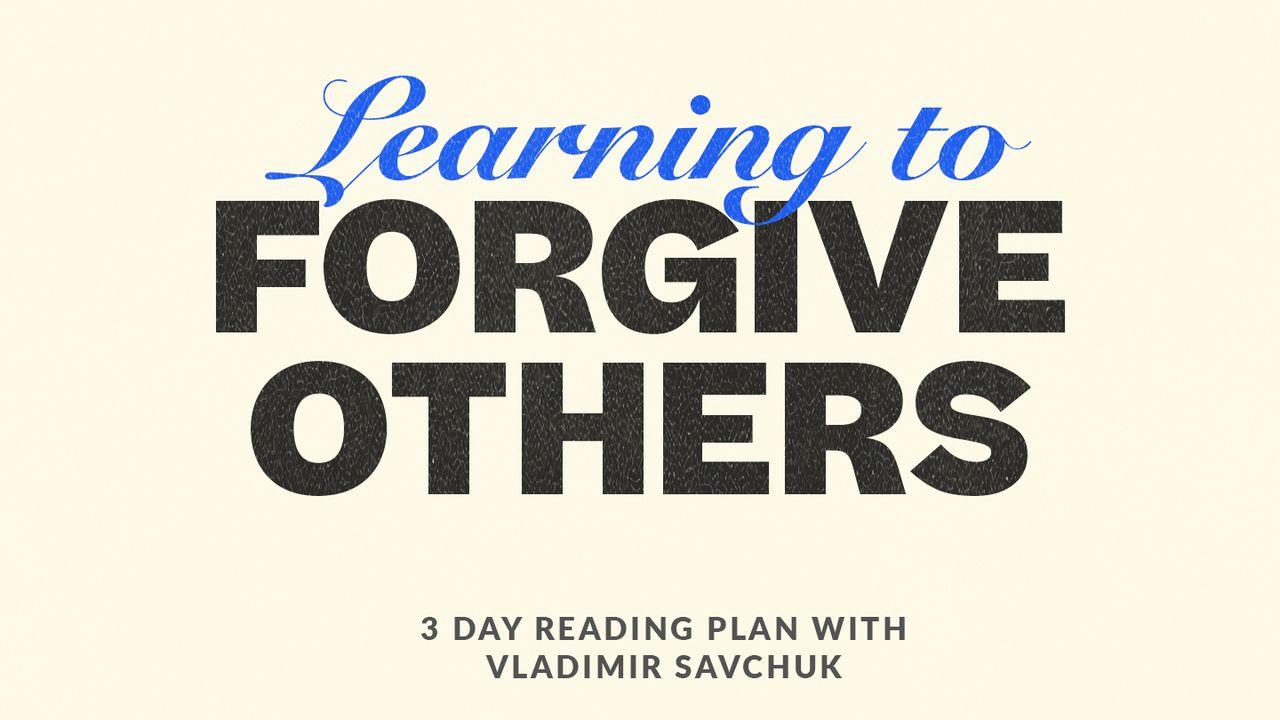Discover the Powerful Steps to Forgive Yourself and Others for a Fulfilling Life
Discover the Powerful Steps to Forgive Yourself and Others for a Fulfilling Life
Blog Article
Understanding the Value of Forgiveness in Healing Relationships
Forgiveness is typically deemed an easy act of releasing, yet its relevance in healing relationships prolongs much past simple absolution. It functions as a critical mechanism for emotional release, allowing individuals to navigate the intricacies of discomfort and resentment. Comprehending the nuanced distinctions in between forgiveness and reconciliation can illuminate the path toward much healthier interactions. As we explore the complex benefits of forgiveness, one should consider exactly how these principles can change not only personal connections yet also the more comprehensive social fabric. What remains to be revealed is the extensive impact mercy can have on specific growth and public harmony - The importance of forgiveness.
The Interpretation of Mercy
Although mercy is commonly viewed as a simple act of releasing, its interpretation includes a complex interplay of psychological and emotional processes. At its core, mercy is the conscious decision to release sensations of animosity or vengeance toward a private or group that has actually triggered damage. This procedure is not just about discharging the transgressor; rather, it entails a profound psychological change that can result in individual development and recovery.
Forgiveness is diverse, frequently identified by an individual's inner battle to reconcile their discomfort with the wish for peace. It calls for recognizing the misdoings dedicated, processing the connected emotions, and inevitably choosing to relocate forward without the burden of displeasure. This option usually entails a cognitive shift, where one reframes their understanding of the criminal and the transgression, permitting for empathy and recognizing to emerge.
Notably, forgiveness does not indicate pardoning the habits or neglecting the crime; it is a calculated act that focuses on psychological well-being. By defining mercy in this way, we can appreciate its function in promoting healthier relationships and fostering emotional durability, establishing the phase for deeper exploration into its benefits.
Emotional Benefits of Mercy
Forgiveness supplies considerable psychological advantages that can profoundly influence an individual's psychological wellness and general wellness. When an individual picks to forgive, they actively launch feelings of bitterness, rage, and resentment, which can or else develop a heavy psychological concern. This release typically brings about a decrease in tension and anxiety, advertising a feeling of tranquility and psychological stability.
Additionally, mercy fosters a raised ability for compassion and concern. By recognizing the point of view of the offender, people can cultivate a deeper emotional strength, which improves their capacity to deal with future obstacles. This process not just improves psychological guideline yet additionally contributes to a more favorable outlook on life.
In addition, forgiving others can reinforce one's self-confidence and self-worth. It enables people to reclaim their personal power, damaging complimentary from the unfavorable cycles of victimhood - The importance of forgiveness. This newfound empowerment can result in much healthier emotional actions and stronger interpersonal relationships
Mercy vs. Reconciliation
The difference between mercy and settlement is critical in comprehending the characteristics of healing relationships. Mercy is an internal process in which an individual picks to allow go of resentment and adverse feelings in the direction of someone who has actually caused injury. It is mainly an individual trip, concentrated on emotional launch and self-healing, permitting one to progress without carrying the burden of past grievances.
In comparison, reconciliation includes restoring this website and bring back the connection to a state of trust and shared regard. This procedure typically calls for open interaction, active engagement from both events, and a dedication to resolving the underlying concerns that led to the problem. While mercy can take place individually, settlement demands the readiness of both people to take part in dialogue and pursue a common understanding.
It is necessary to keep in mind that mercy does not always cause settlement. A person may forgive another without choosing to recover the connection, especially if count on has actually been irrevocably damaged or if the connection is considered undesirable. Understanding this distinction enables people to navigate their feelings successfully and make notified choices concerning their relationships.
Steps to Cultivate Mercy
Growing forgiveness is a calculated process that involves several key actions intended at facilitating psychological recovery. The very first step is acknowledging the discomfort triggered by the violation. Identifying one's feelings is important, as it allows people to refine their feelings really.
Following, reviewing the case and recognizing its impact can supply quality. This reflection needs to consist of taking a look at the inspirations behind the transgressor's actions and recognizing that everyone is imperfect.
The 3rd action entails making an aware choice to forgive. This decision is crucial, as it signifies a readiness to allow go of bitterness and progress.
Consequently, sharing sensations in a useful way can be valuable - The importance of forgiveness. Whether with journaling, talking with a trusted buddy, or looking for therapy, articulation of feelings can help my link in the mercy trip
Real-Life Instances of Mercy

In one more example, a close-knit team of friends dealt with a substantial rift after one member accidentally shared a private key. Rather of harboring resentment, the influenced friend decided to forgive, understanding the significance of valuing the relationship over the mistake. This decision motivated open dialogue and ultimately reinforced their connection.

Conclusion
Finally, forgiveness plays a crucial role in the healing of partnerships by promoting the release of negative feelings and cultivating empathy. By comparing forgiveness and settlement, individuals can participate in a constructive process that boosts emotional health. Carrying out steps to cultivate forgiveness can bring about transformative results, reinforcing links and advertising an encouraging atmosphere. Inevitably, the practice of forgiveness functions as a driver for personal growth and the nurturing of healthier interpersonal characteristics.

Report this page